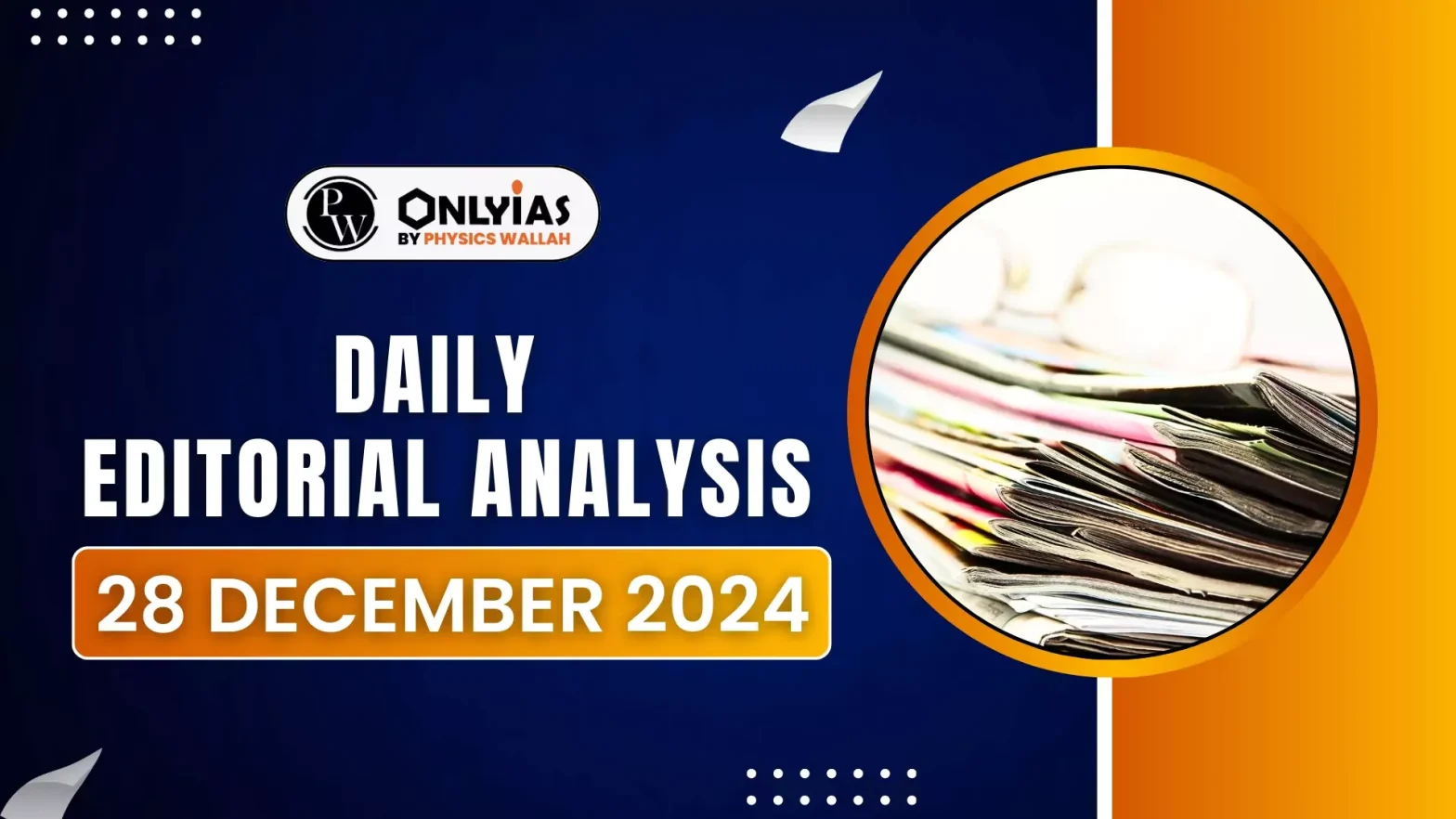The life of an Indian bureaucrat is a paradox: tasked with driving the nation’s progress, they endure immense pressure, conflicting demands, and an overwhelming workload. While expected to deliver exceptional results, they often face a hidden epidemic of stress.
Beyond Physical Stress
- Bureaucrats operate in an environment where the hazards are not just physical but also psychological. The demands of long hours, constant multi-tasking, and the need to sift through hundreds of files daily take a toll on their well-being.
- Their days are punctuated by irate calls from stakeholders and urgent demands from political leaders.
- The stress of navigating shifting expectations and dealing with the egos of superiors and political stakeholders often creates a toxic work atmosphere, where even verbal abuse may be endured.
Enroll now for UPSC Online Course
Fear, Pride, and Burnout
- While their professional lives are steeped in responsibility, bureaucrats are also entangled in a web of emotions—fear, pride (of being an officer), jealousy (among colleagues), and increasingly, burnout.
- Despite the existence of service rules designed to protect them, there is a pervasive fear of being questioned, often fueled by the weaponization of intricate regulations.
Bureaucracy in a VUCA World
- The challenges faced by bureaucrats are amplified in today’s volatile, uncertain, complex, and ambiguous (VUCA) world.
- Stakeholder expectations evolve rapidly, yet the training and skill development of civil servants remain largely static and outdated.
- Many mid-career bureaucrats resist retraining or unlearning, relying on their experience instead. This reluctance, coupled with the fast-changing demands of their work, creates a dangerous cycle of overwork and under-preparation.
Complacency vs. Innovation
- Unlike their counterparts in corporate or civil society roles, who face redundancy without continual upskilling, bureaucrats can coast through an unremarkable career by keeping a low profile.
- However, this complacency undermines their role in driving change and innovation. Bureaucrats did not choose this path to lead uninspired, stagnant professional lives. But with little incentive for innovation, risks often outweigh rewards, and self-preservation becomes the priority.
Intensifying Stress and Its Consequences
- Stress in the bureaucracy is not new, but its intensity and consequences have reached alarming levels. Chronic exposure to occupational overload results in burnout—a debilitating condition far worse than transient stress.
- Studies have shown that sustained high stress alters the body’s ability to respond to new stressors. Symptoms of burnout range from physical fatigue and insomnia to behavioral issues like irritability, social withdrawal, and reduced creativity.
- It diminishes not only the bureaucrat’s productivity but also their capacity to contribute meaningfully to society.
Check Out UPSC CSE Books From PW Store
Prioritizing Bureaucrats’ Well-Being
- Health First: Encouraging bureaucrats to prioritize their physical, emotional, and mental health should become a norm. Regular check-ups, access to confidential counseling services, and workplace wellness programs must be implemented.
- Time for Reflection: Setting aside personal time for introspection and free thinking could help officers regain clarity and perspective.
- As Mahatma Gandhi once said, “There is more to life than increasing its speed.”
- Unlearn and Relearn: Institutionalizing continuous learning through regular workshops on emerging challenges, technology, and leadership skills is essential for bureaucrats to adapt to the changing landscape of governance.
- As Alvin Toffler put it, “The illiterate of the 21st century will not be those who cannot read and write, but those who cannot learn, unlearn, and relearn.”
- Fixing Incentives: To encourage innovation and exceptional performance, tangible rewards and allowances for experimentation should replace the current reliance on the arbitrary whims of superiors. This would foster creativity and progress within the bureaucracy.
Conclusion
Civil servants are the backbone of governance, and their well-being is critical to the nation’s progress. India must recognize that the resilience of its bureaucracy is not infinite. As the Bhagavad Gita reminds us, “Yoga is the journey of the self, through the self, to the self.” A focus on self-care, lifelong learning, and systemic reform can empower bureaucrats to fulfill their roles with greater effectiveness and joy.
![]() 28 Dec 2024
28 Dec 2024
